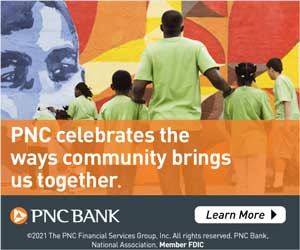By Brittany Sabalza
EVERY YEAR, MILLIONS OF TAXPAYERS FILE their income tax returns, as a civil and legal obligation. Though taxes are a big headache, income taxes are very necessary. The roads, schools, even federal, state and local governments are supported by our tax dollars. Our tax system is how we support the many “moving pieces” of this country and the tax industry is made of fearless tax professionals who take on taxation one tax code at a time.
From tax preparer to enrolled agents, tax pros are the backbone of the tax industry. Tax pros provide a variety of tax services such as tax preparation, tax resolution, tax planning, tax consulting and internal audits, covering areas such as tax compliance or tax consultancy.
A tax career can be a very rewarding, as there are a variety of paths one can take to advance his or her career. To make your big break into the tax industry, consider starting your tax pro journey as a tax preparer. Becoming a tax preparer is a great way to jump start your tax career. Tax preparers are the frontline of tax preparation. Answering taxpayer questions, organizing documents and preparing tax returns based on tax regulations, tax preparers assist individual and business taxpayers understand their tax situations and remain compliant with their tax obligations. And since nothing in life is certain except death and taxes, I think it’s safe to say that a tax career can be considered pretty stable.
Getting your feet wet in tax preparation is the perfect way to introduce yourself to the tax code, while you gain hands on tax preparation experience and get your foot in the tax industry door.
Some employers offer on-the-job tax training for new hires. You can also take seasonal tax courses at a local tax chain or through an online course. Check to see if the course provider is an approved IRS continuing education provider on the IRS website. Tax preparers are not regulated by the IRS, meaning there is no required certification but voluntary tax certifications exist if you want to have a competitive edge. Tax training is necessary to be knowledgeable as a tax preparer and a knowledgeable tax preparer is very valuable. A comprehensive tax course will teach you to prepare basic individual tax returns. Tax certifications offer a deeper understanding of tax and expand the scope of returns that the preparer can handle. To file taxes a preparer should obtain a PTIN (Preparer Tax ID Number), which can be obtained through the IRS.
Though you may start seasonally, it’s a great way to earn cash full or part time. Further advancing your tax knowledge can lead to year-round tax employment. The tax industry offers tremendous growth potential. A degree in taxation, accounting or finance is highly regarded in the tax industry but a career can be created even without a degree. Many tax pros receive a series of certifications after completing their degrees but most people don’t realize you don’t need a degree to obtain the majority of these certifications. The tax industry is a place where your tax expertise and experience alone can win you a leading position, making this a great career for those non-degree holding professionals, looking for a growth-oriented career. As a tax pro you could have opportunities with government agencies, tax firms, or you can open your own tax business.
According to Data USA, the average tax preparer salary is $54,089 and growth is predicted to be 10.8 percent among tax preparers over the next 10 years.
The tax industry, as well as the accounting industry lack diversity, and minority tax pros are in demand. Of tax preparers approximately 30 percent are a minority with 10 percent being African American but we often become preparers and go no further in tax. The tax and accounting industries significantly lack racial diversity across the board and certain firms are working to increase diversity. According to the National Association of Black Accountants (NABA, nabainc.org), the United States had less than 1 percent of African-American CPAs when the association was founded in 1969. Four decades later, barely 3 percent of CPAs are African Americans; 4 percent of CPAs are Asian, while 1 percent are Latino. You can be the start of diversity while pursuing your dream career. Large and small tax firms are working to diversify staff, while more and more minority taxpayers are looking to support minority tax businesses and tax professionals.
Consider a career in tax, make money and make a difference all at the same time. I
Brittany Sabalza, enrolled agent, is director of continuing education for Pro Tax Solutions Indianapolis and a tax columnist.










